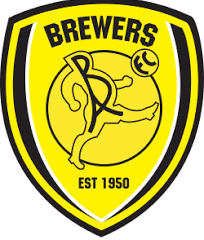Ryan Mason: A Key Figure in Tottenham Hotspur’s Future

Introduction
Ryan Mason has recently become a significant figure in the world of football, particularly for Tottenham Hotspur. Following a successful playing career hampered by injury, Mason transitioned into coaching, where he has quickly established himself as a key component in shaping the future of the club. As the football landscape evolves, Mason’s role could prove crucial, not just for Tottenham, but for English football as a whole.
Ryan Mason’s Background
Mason was born on June 13, 1991, in Enfield, London. He joined Tottenham Hotspur’s youth academy at just eight years old and progressed through the ranks. His playing career saw him make his professional debut in 2008, eventually becoming a prominent first-team player during the 2014-2015 season under the management of Mauricio Pochettino. Mason was known for his technical skill and vision on the pitch, making him a favourite among fans.
Transition to Coaching
In 2018, Mason was forced to retire from professional football due to a head injury sustained during a match. Following this career-ending event, he quickly pivoted to coaching, taking up a position within Tottenham’s academy. His understanding of the game, combined with his experience at the highest levels, made him an ideal candidate for nurturing young talent.
Recent Developments
In April 2021, Mason made headlines when he was appointed as Tottenham’s interim head coach at the age of just 29, following the dismissal of José Mourinho. His tenure, although brief, showcased his ability to handle pressure and connect with players. Under Mason’s leadership, the team reached the Carabao Cup final, demonstrating that he could motivate the squad and implement tactical discipline, despite being a novice in a top club’s managerial role.
Significance and Future Prospects
Mason’s journey is indicative of a broader trend within football, particularly the rise of younger managers. His fresh perspective and alignment with Tottenham’s philosophy could lead to long-term success for both Mason and the club. As the Premier League continuously becomes more competitive, having a coach who understands the club’s culture while being in tune with contemporary football tactics will be essential.
Conclusion
While Ryan Mason is still relatively new in his coaching career, his impact on Tottenham Hotspur cannot be understated. The coming years will be pivotal as he develops into a key figure in football management. As fans and analysts keep an eye on his progress, it is clear that Mason’s future is bright, and he could very well be one of the next big names in football coaching in England.









